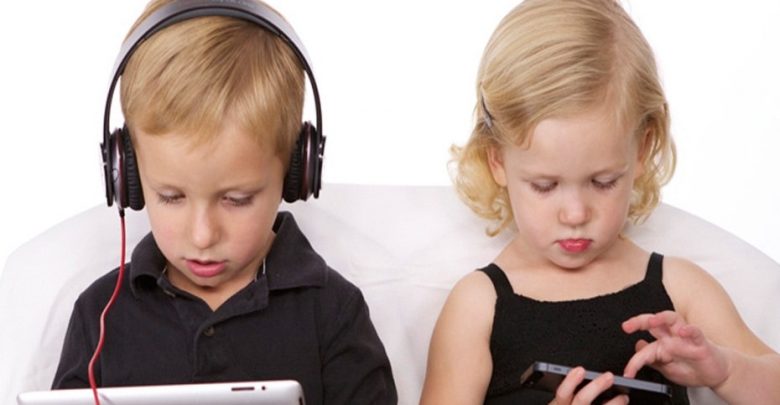
No TV and smartphones for children younger than two, says WHO
منظمة الصحة العالمية: لا يجب السماح للصغار دون عامين مشاهدة الشاشات الرقمية
Children under the age of two should not watch TV or play on smartphones, nor spend more than an hour at a time strapped in a stroller or on caregiver’s back, according to new physical activity guidelines published by the World Health Organisation (WHO) on Wednesday.
The guidelines for children under the age of five years adds weight to a local version published in December, and details how much time very young children should spend sleeping, moving and playing in a 24-hour period.
Wits senior researcher Dr Catherine Draper, who was involved in crafting both the local and the WHO guidelines, said the biggest challenge for caregivers in SA was the amount of time young children spent sitting in front of television screens or playing with smartphones and tablets.
The WHO says “less is better” when it comes to screen time and that it should ideally only begin at the age of two, and then for no more than an hour a day. The local guidelines express the same view.
The habits established in early childhood are generally carried through into adolescence and adulthood, so limiting sedentary screen time and encouraging physical activity among young children gives them the opportunity to lay a healthy foundation for their future growth and development, said Draper.
She previously told Business Day that girls who were overweight between the ages of four years and eight years were 42 times more likely to be overweight or obese in their late teens, while overweight boys were 20 times more likely to be overweight in their teens.
Research indicated that caregivers and policy makers in SA were generally more responsive to messages about childhood development than information about future health risks, she said.
“The threat of high blood pressure in 20 years doesn’t make people wake up, but if you start talking about how too much screen time impacts on cognitive development and [children’s] ability to concentrate … it resonates a lot more. People want children to be ready for school,” she said.
The local guidelines were developed with the Laureus Sport for Good Foundation SA, and will hopefully be incorporated into future government initiatives and policies, she said.
The WHO guidelines emphasise that the quality of the activities undertaken when sedentary are important, and says reading or storytelling with a caregiver is preferable to screen time. Similarly, the quality of sleep children get from birth to five years is important, and the guidelines emphasise regular sleeping and waking times.
The WHO guidelines say infants should be active several times a day, and spend at least half an hour a day on their stomachs; children aged between one and two years should spend at least two hours a day being physically active; children aged between three and four years need to be at least as active, and at least one hour a day should be moderate or vigorous activity.
“The key to these guidelines is not ‘compliance’ but trying to determine what the barriers are, and addressing them. We also need to embed the importance of creating opportunities for safe, physical activity in our communities, as a basic human right for children,” said Prof Vicki Lambert from the University of Cape Town.
The issue of how much screen time was appropriate for children was complex, she said.
“For low resourced settings, screen time, used purposively, may be an important tool for widening educational opportunities and levelling the playing fields, However, it should not be used as a ‘baby-sitter’ or as an alternative for engaged child care, such as reading, quiet play or puzzles,” she said.
source: businesslive.co.za
قالت منظمة الصحة العالمية اليوم الأربعاء إنه لا يجب السماح للصغار دون عامين مشاهدة الشاشات الرقمية على الإطلاق، وذلك في إطار توجيهات تهدف إلى الوقاية من الأمراض في حياتهم لاحقا.
ونشرت المنظمة في مقرها بمدينة جنيف السويسرية اليوم، أولى توصياتها بشأن حركة الأطفال دون الخامسة، ونومهم ومشاهدتهم لبرامج التلفزيون أو أي محتوى على شبكة الإنترنت.
وجاء في التوصيات: “تم تحديد انعدام النشاط البدني كعامل خطورة رئيسي للوفيات في أنحاء العالم، وكمساهم في زيادة الوزن والبدانة”.
ووفقا للتوصيات، يتعين على المواليد أن يكونوا في حالة نشاط بدني حوالي 30 دقيقة يوميا، تزداد إلى ثلاث ساعات بعد مضي العام الأول.
كما يجب أن يقتصر الجلوس ومشاهدة برامج التلفزيون أو أي محتوى على أجهزة المحمول، على ساعة واحدة يوميا في الفترة بين عامين وأربعة أعوام.
وقالت جوانا وليامسون، خبيرة الصحة العامة بالمنظمة: “الأمر الجوهري في هذه السن هو التفاعل مع من يتولى الرعاية”.
كما أوصت منظمة الصحة العالمية، بأن ينام حديثو الولاة لمدة لا تقل عن 17 ساعة، تقل تدريجيا لتصل إلى عشر ساعات في سن الثالثة.
يشار إلى أن هذه التوصيات تماثل القواعد الوطنية المتبعة في دول مثل أستراليا وكندا والولايات المتحدة ونيوزيلندا.
ووفقا لوليامسون، ليست الدول الغنية فقط هي التي ابتليت بانعدام الحركة والافراط في قضاء الوقت أمام الشاشات الرقمية.
وقالت وليامسون: “إنها قضية متنامية في أجزاء من العالم تشهد تحولا حضريا”، مشيرة إلى مشكلة عدم توفير رعاية كافية لأطفال الوالدين العاملين.



